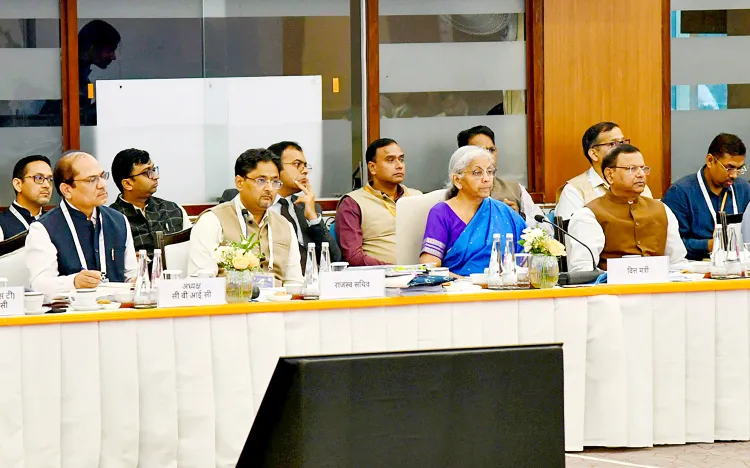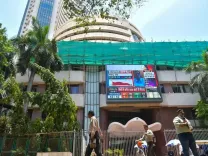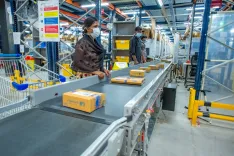How are GST reforms for MSMEs driving growth and employment across India?

Synopsis
Key Takeaways
- Lower GST rates strengthen supply chains.
- Enhanced local manufacturing boosts employment.
- Support for women and rural entrepreneurs.
- Increased demand in various sectors.
- Affordable goods promote economic inclusion.
New Delhi, Sep 14 (NationPress) By reducing GST rates across various sectors such as automobiles, food processing, apparel, logistics, and handicrafts, the reforms are designed to strengthen supply chains, enhance local manufacturing, and increase employment opportunities, particularly for women, rural entrepreneurs, and workers in the informal sector, as stated by the government.
Multiple industries, including garments, toys, handicrafts, leather, and MSMEs, are expected to see a boost in job opportunities, with significant effects on women's employment in textiles, tailoring, and dairy.
For instance, a decrease in GST on two-wheelers, cars, buses, and tractors is projected to elevate demand, favoring MSMEs involved in tyres, batteries, glass, plastics, and electronics.
Affordable motorcycles will support gig workers, farmers, and rural traders, while lower-priced cars will benefit MSMEs and dealerships situated in small towns.
The GST reduction to 5% on tractors (under 1800 cc) solidifies India's leadership in global tractor manufacturing and aids ancillary MSMEs. The GST on commercial vehicles (trucks, delivery vans) has been slashed from 28% to 18%, which reduces freight and logistics expenses, alleviates inflationary pressures, and supports MSME truck owners.
Furthermore, the GST on buses (10+ seats) has dropped from 28% to 18%, resulting in lower costs for fleet operators and schools, thus improving fare affordability for laborers.
The GST on most food items has decreased from 12%/18% to 5% or zero, providing support to MSMEs in food processing, small-scale processors, regional brands, dairy cooperatives, packaging, and cold storage.
Additionally, the reduction of GST on chocolates, cakes, and confectionery is expected to enhance sales for small sweet producers. The dairy industry benefits from zero GST on milk and paneer, and a reduction from 12% to 5% on butter and ghee, thus supporting farmers, self-help groups, women-led enterprises, and promoting nutrition security. The GST on milk cans has also been reduced from 12% to 5%.
Moreover, the GST on man-made fibers has been cut from 12% to 5%, correcting the inverted duty structure and enhancing competitiveness for MSME textile manufacturers and exporters.
The GST slab for readymade garments has been expanded to 5% for items priced up to Rs 2,500 (previously Rs 1,000), stimulating demand in Tier-2 and Tier-3 towns and supporting labor-intensive garment units, particularly benefiting women.
The GST on leather products has been lowered from 12% to 5% (for items priced below Rs 2,500 per pair), benefiting MSMEs in hides, tanneries, and footwear manufacturing.
In addition, the GST on cement has been decreased from 28% to 18%, which reduces housing costs and supports the PMAY initiative, potentially increasing jobs in mining, manufacturing, and logistics.
The reduction of GST on agro-based wood products (like rice husk boards and bamboo flooring) from 12% to 5% supports MSME wood product units.
These lower GST rates have made essential goods, raw materials, and services more affordable, encouraging small and medium enterprises and startups to enhance operations, invest in innovation, and compete on both domestic and international stages.
These reforms promote industries led by women and those that are labor-intensive by making manufactured goods, processed foods, apparel, and eco-friendly products accessible at reduced costs, fostering economic inclusion of rural, semi-urban, and informal sector workers alongside urban manufacturers, according to the government.









